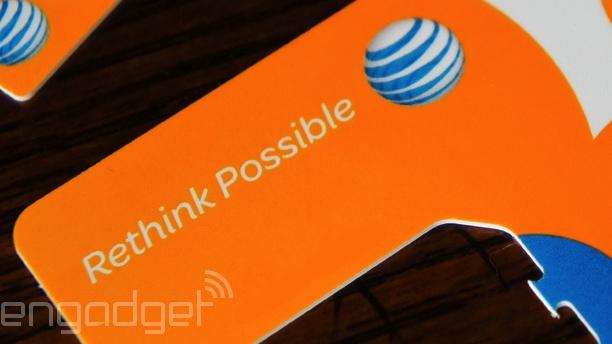datarequests
Latest

Apple received over 32,000 user data requests in six months
Apple's bi-annual transparency report is here and it now has its own interactive page on Apple's website. As usual, it details the personal data requests Apple received from governments worldwide. Only the new look makes it easier to review and digest thanks to a slider at the bottom that lets you scroll through report cards for each country. And if you're a fan of the old ways, you can still download a PDF crammed with the same data.

Google, Yahoo and others are getting fed up with government gag orders
The EFF may be handing out gold stars to firms that publish their own transparency reports, but earning that recognition isn't easy. Government data requests are often coupled with gag orders, barring firms from telling users that security agencies are thumbing through their data. Now Google, Yahoo, Microsoft and Facebook are arguing that these orders are a violation of the First Amendment.

Here's what Apple does when US law enforcement wants your data
Apple insists that the US government doesn't have backdoor access to its data (despite signs to the contrary). So what happens when law enforcement comes knocking at the company's door, then? We have a fairly good idea as of this week. The company has published guidelines showing just what data it can provide to the authorities and the legal steps needed to get that information. As a rule, Apple can hand over anything from iCloud and its stores as long as there's a proper court order, subpoena or warrant. It can also pull call records, contacts, text messages and media from locked iOS devices sent to its headquarters in Cupertino, although calendars, email and third-party apps are off-limits.

AT&T echoes Verizon with plans to publish reports on law enforcement data requests
Sometimes, peer pressure can be a beautiful thing. Just hours after Verizon said it would start publishing transparency reports, AT&T has followed suit with plans of its own. Big Blue will largely mirror its rival's moves and publish a semi-annual internet report that breaks down law enforcement requests by type, such as court orders. The initial study, due in early 2014, will summarize the telecom provider's 2013 data. We'd note that AT&T is reversing its attitude from just days earlier, when it was hostile toward shareholders that wanted a similar level of accountability. Still, we don't mind the contradiction if it brings more government surveillance activity to light -- even if it doesn't address thornier issues like warrantless wiretapping.

Verizon to publish regular reports on government data requests
Numerous tech giants have been eager to publish what they can about government data requests, but telecoms haven't been so forthcoming. Verizon is breaking some ground, though, with plans to publish semi-annual transparency reports starting in early 2014. While the reports will mostly reflect information that the carrier has already been publishing in some form, the data will be more accessible and consistent than before. Much like Google, Verizon plans to break down requests by type, such as court orders and warrants. It's also asking the government if it can be more precise with the number of National Security Letters it received last year. Although it's doubtful that the reports will reveal everything that the public would like to know, they represent a big step forward for a communications industry that many believe is too eager to cooperate with government eavesdroppers.

Apple, Google and others ask US government for more transparency with data requests
Just a few days after Google and Twitter pushed for the government to reveal the number of security-related requests, the Obama administration and Congress have just received another salvo backed by even more tech heavyweights -- 63, to be exact. A letter signed by many of the giants covered by PRISM -- including Apple, Facebook and Google, among other major companies -- requests greater transparency in data requests, and demands permission to publish regular reports indicating what information is collected. In addition to pushing for greater transparency among companies, the memo urges Congress to enact similar requirements for the US government. The letter adds: This information about how and how often the government is using these legal authorities is important to the American people, who are entitled to have an informed public debate about the appropriateness of those authorities and their use, and to international users of US-based service providers who are concerned about the privacy and security of their communications. Those words were backed by several non-profit groups such as the Wikimedia Foundation in addition to a long roster of companies and investors, making this letter one of the loudest responses to the NSA's data-collecting program to date. Click through to read the full text.

Google challenges FISA court on government data requests, asks for ability to release more details
Google and other companies have already made general calls for more transparency in the wake of the PRISM revelations, and it looks like Mountain View is now escalating those requests to a court challenge. As The Washington Post reports, Google is asking the Foreign Intelligence Surveillance Court for some additional leeway with the government requests for data that it's able to disclose, and it's citing the First Amendment to make its case. In a statement provided to us (included in full after the break), a Google spokesperson says that the company is specifically asking the court to let it "publish aggregate numbers of national security requests, including FISA disclosures, separately," adding that "lumping national security requests together with criminal requests - as some companies have been permitted to do - would be a backward step for our users." That's in line with a statement Google made on Friday, which was echoed by Twitter, although there's no word yet on it or any other companies joining Google in the court challenge at this time.




